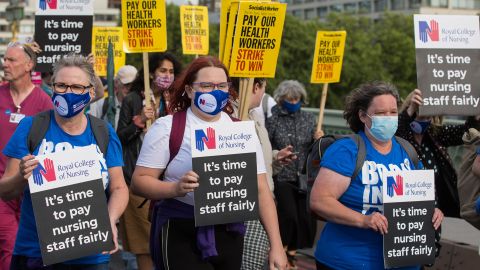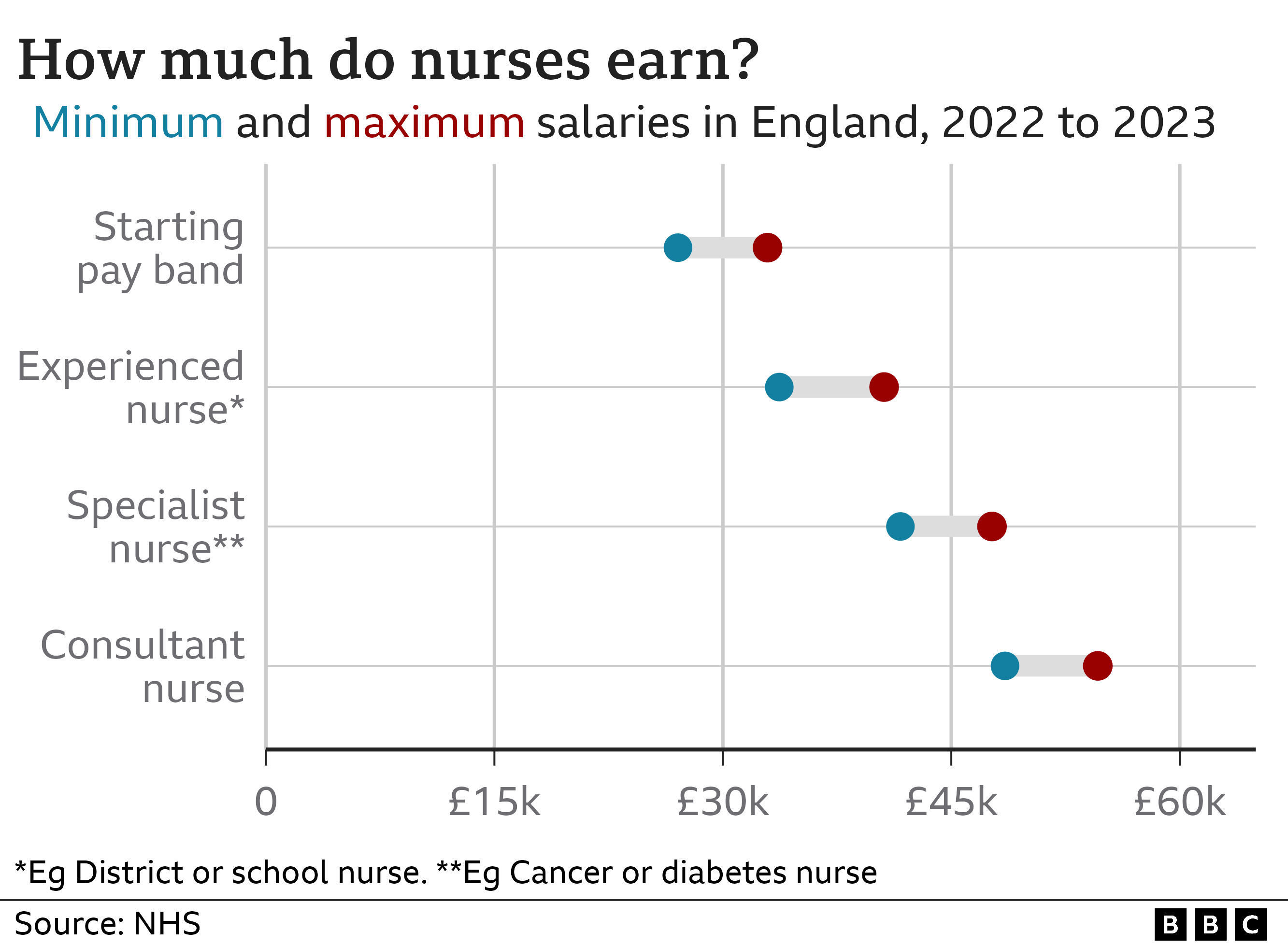UK’s largest nursing strike in NHS history set to start
- Posted on
- Comment

Nurses in England, Wales and Northern Ireland are to go on strike from 08:00 on Thursday in the largest action of its kind in NHS history.
Staff will continue to provide “life-preserving” and some urgent care but routine surgery and other planned treatment is likely to be disrupted.
The Royal College of Nursing said staff had been given no choice after ministers refused to reopen pay talks.
The UK government said the RCN’s 19% pay rise demand was unaffordable.
The action will involve nurses in around a quarter of hospitals and community teams in England, all health boards in Northern Ireland and all but one in Wales. Nurses are not striking in Scotland.
Under trade union laws, the RCN has to ensure life-preserving care continues during the 12-hour strike.
Chemotherapy and kidney dialysis should run as normal, along with intensive and critical care, children’s accident and emergency and hospital neonatal units, which look after newborn babies.
Beyond that, it will be up to NHS boards and trusts to negotiate services on a local level, with discussions likely to come down to the circumstances of some individual patients.
The biggest impact is likely to be in pre-booked treatment such as hernia repair, hip replacements or outpatient clinics.
The NHS has said it is “vital” people continue to come forward for emergency care during the strikes and anyone not contacted to reschedule an appointment should attend as planned.
“Nurses have had enough – we are underpaid and undervalued,” nurse anaesthetist and local RCN steward Lyndsay Thompson, from Northern Ireland, says.
“Yes, this is a pay dispute but it’s also very much about patient safety.
“The fact we cannot recruit enough nurses means patient safety is being put at risk.”
Ms Thompson, who has worked as a registered nurse for 12 years, says her colleagues “absolutely do not want to strike” but feel the need to take action “to protect the NHS” after a period of below-inflation pay rises.
“We just feel we have no other option, because the government is not listening to us,” she says.

The RCN balloted more than 300,000 nurses across individual NHS trusts and boards rather than in a single, national vote.
This means some nurses are not entitled to take industrial action, because the turnout in their local area was too low.
In England, the first round of strikes will go ahead in 51 of 219 hospitals, mental-health trusts and community services.
Strikes are also going ahead in all of Northern Ireland’s health boards and all but one in Wales, the Aneurin Bevan.
Most GP services will be unaffected, as nurses working directly for practices were not entitled to take part in the vote, but the strike will include district nurses working in people’s homes or community settings.
A second day of strike action will go ahead on 20 December, unless there is a breakthrough in talks.
In England and Wales, most NHS staff have already received a pay rise of roughly £1,400 this year – worth about 4% on average for nurses.
The political situation in Northern Ireland meant there was a delay in processing the increase – but nurses should receive backdated payments before the end of the year.
The RCN wants a larger rise, of 5% above the RPI inflation rate, which currently stands at 14%, saying its members have received years of below-inflation pay increases.

England’s Health Secretary, Steve Barclay, said further pay rises would mean taking money away from other front-line services.
“I’ve been working across government and with medics outside the public sector to ensure safe staffing levels – but I do remain concerned about the risk that strikes pose to patients,” he said.
Mr Barclay added that the government had followed the recommendation of the independent NHS Pay Review Body, which said in July NHS staff should receive £ 1,400 increase, with slightly more for the most experienced nurses.
The body, made up mainly of economists and human-resources (HR) professionals, had been asked to base that recommendation on a range of factors, including:
- the need to recruit staff
- the funds available to the NHS
- the government’s 2% inflation target
Welsh ministers said they were unable to enter pay talks without extra funding from the UK government.
In Scotland, the RCN’s strike action has been “paused”, after ministers made a fresh offer worth just over £2,200 a year for most NHS staff. Nurses have been asked to vote on that deal, with results due next week.
-BBC










 (Selorm) |
(Selorm) |  (Nana Kwesi)
(Nana Kwesi)